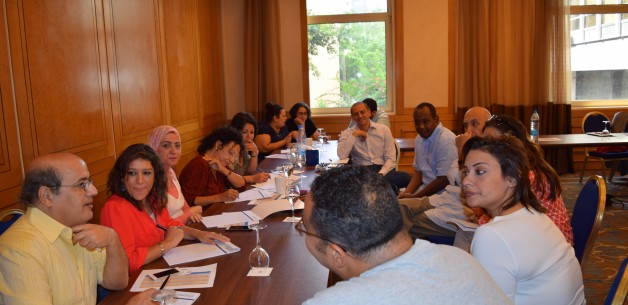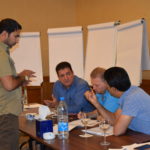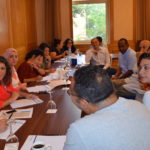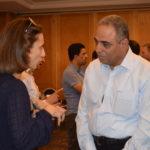This post is also available in: Arabic
From September 23 to 25 2016, 33 individuals representing civil society organizations from Egypt, Tunisia, Yemen, Iraq, Lebanon, Morocco, and Jordan met in Beirut Lebanon in September 2016 to discuss how participants can build on the experiences of their colleagues in other MENA region countries, as well as strategies and modes of engagement with the World Bank for the future. The participants came from various backgrounds and fields of focus, ranging from transparency, media, and economic and social rights to gender and youth participation. Part of the workshop focused on how to search the World Bank’s website for information, and how to use the available, albeit limited, space for civil society to influence the Bank’s policies in the MENA region, as well as hold high officials and institutions to their commitments with the Bank.
During the first day of the conference, participants had the opportunity to examine modes to track development financing, with specific emphasizes on Access to Information. Later in the day, participants shared their experiences concerning 3rd party and community-led monitoring in Egypt, Tunisia, and Yemen.
The second day was devoted to collecting input and feedback on a soon-to-be-launched BIC manual on community-led project monitoring. This manual lays out a step by step process for how communities can monitor the implementation of development projects in the MENA region. Participants were able to provide feedback on how this manual can be most effective and accessible for communities that they work with in the region. BIC anticipates the manual to be finalized near the end of October. In January, BIC will hold a ‘training for trainers’ targeting organizations who work directly with communities who could use the manual. At the workshop, individuals will learn how to conduct a training for communities on monitoring development projects using the tools and process described in the manual.
To conclude the workshop, the participants discussed strategies for engaging with the World Bank on a variety of issues of interest in the coming year.




